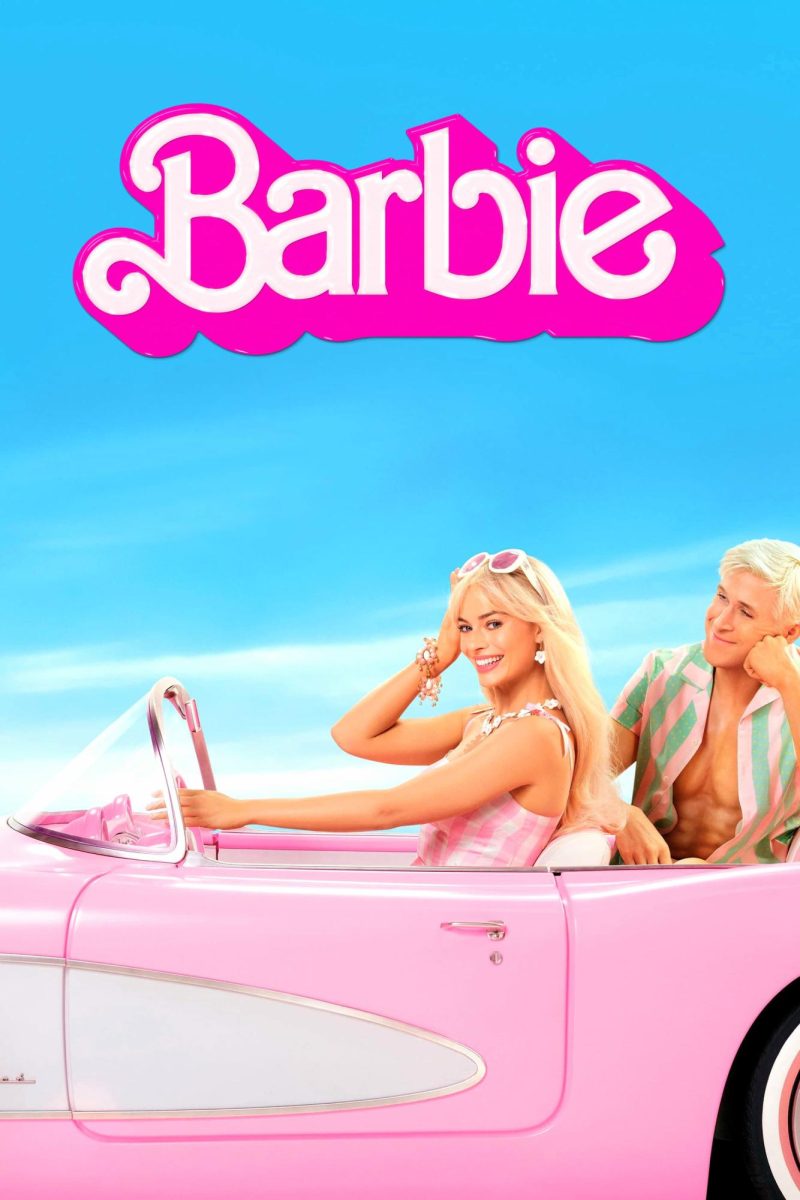On a late summer day, I found myself scouring my house for pink clothes. Standing in the bathroom with my friends, we braided our hair, perfected our bubblegum lipstick, and painted our eyelids with glitter, chittering with excitement for the highly anticipated movie, Barbie. After driving to the movie theater, and listening to “I’m Just Ken”, my family, friends, and I walked into the screening room. The room darkened and the movie began.
Not long after the movie started, I realized that Barbie was so much more than a movie about a toy. It was a statement from women to society, a criticism of misogynistic ideals, and an ode to the complexities of life.
Barbie starts just as one would expect: pink, sparkly dresses, upbeat music, and an overwhelming yet refreshing amount of peppiness. Female Barbies (all named Barbie) lived a perfect, empowering life. At every corner, there were Barbies showering each other with support and thriving in the luminescence of feminism. The creators of Barbie were able to develop a beautiful utopian world full of color, joy, and most significantly: women’s rights.
In Barbie Land, women held all the important jobs and rights, while Kens were side-pieces and full-time supporters. The film uses the dramatic reversal of idealized gender roles to its advantage. By switching stereotypical roles, all the inequalities between genders were so much more potent now that men were the ones receiving them. Whatever the Kens so clearly lacked in Barbie Land, was what women have been lacking for generations.
The movie takes a turn as Stereotypical Barbie (Margot Robbie) experiences uncharacteristically negative thoughts like death. In order to save herself, she finds herself in the ‘real world’, searching for the human playing with her. She suddenly realizes that the human world was not designed for people like her— for women.
Ken (Ryan Gosling), who accompanied Barbie on her voyage to the real world, was empowered by the intense themes of patriarchy. The overwhelming masculinity of the real world is presented as hyperbole, images of men in power riding horses into the sunset. This parody deepened the sickening realization that the men presented were not just a piece of fiction for some movie; all the men were real men of history. As Ken is enamored by a place where he ‘belongs’, we realize that the world was not built for women.
Seeing how deeply embedded sexism is in our society was an eye-opening experience. Watching the movie was like reentering society. Barbie teased the audience with a fantasy where women were raised on a pedestal, then all the rights women never really had were taken away from the Barbies, mirroring reality. The way this “reveal” of the real world was set up exposes the hurdles that women have already had to overcome to earn their spot in history and the world.
Watching Barbie with my friends, sister, and mom was very special because we all had different experiences and understandings of what it means to be a woman, yet we all felt understood. The scene that stuck with me the most was at the end when Barbie felt what it meant to be a human. She witnessed the realities of growing up, as Billie Eilish’s “What Was I Made For” began to play. It was a beautiful experience, surrounded by the people I hold closest to my heart.
Although Barbie expressed messages of feminism, it was, most of all, a movie about the human experience. It was not about making a total change in society but bringing equality where women do not need to work so hard to earn it. It displayed the balancing act of precious life moments and those that cause pain. I left the movie feeling reawakened, perplexed, but most of all, human.













